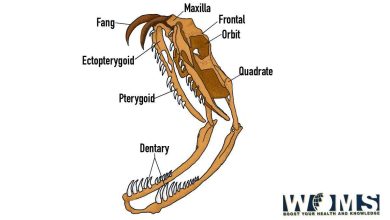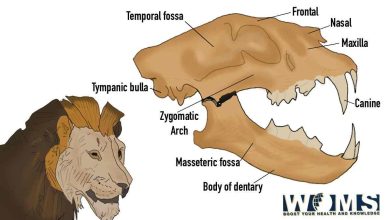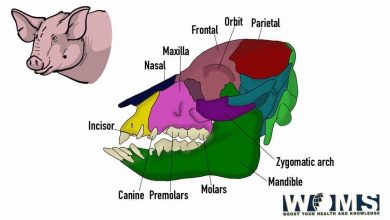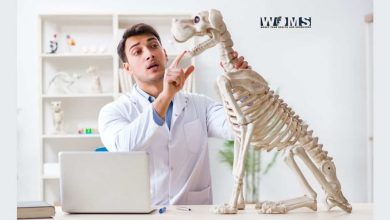Dog Hiccups: is It a Serious Issue?
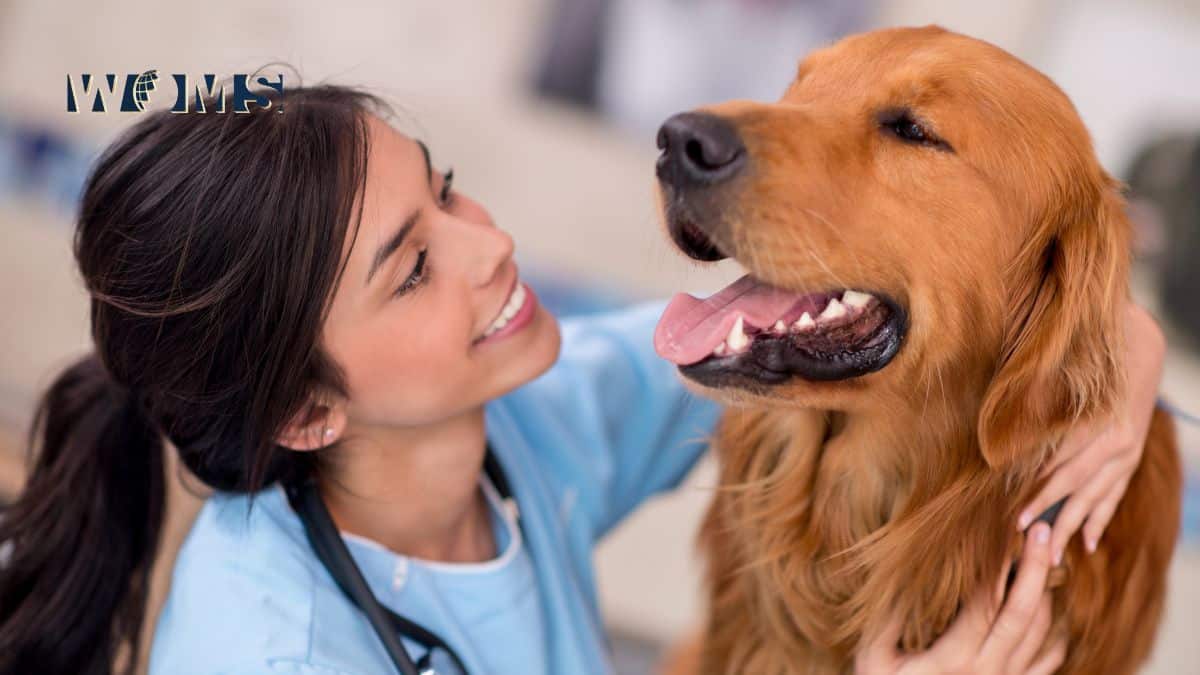
Hiccups are annoying for humans but considered normal to be part of life. Dogs can also suffer from hiccups. These dog hiccups seem cute or comical sometimes. But, it is a matter of concern for the owners regarding the health condition of their dogs. Dog hiccups for a shorter period without disturbing the quality of life of your dog are normal. But dog hiccups lasting longer than hours seem serious and need management.
If you are a new puppy parent and are worried about your dog’s health, this article may help you in several ways regarding dog hiccups. This article covers the causes, management, prevention, and associated remedies to treat dog hiccups. Continue reading the article to get answers to your questions related to dog hiccups.
Why Do Dogs Get Hiccups?
Considering humans and dogs, hiccups are mainly because of spasms of a muscle. Muscles associated with the diaphragm, lying beneath the lungs, undergo spasms. The sound created during hiccups is mainly because the space between vocal cords (glottis) closes rapidly due to spasms. Several scientists are not sure about the causes of hiccups. There are multiple causes associated with dog hiccups.
One of the main causes is that these hiccups are the holdover of fetal growth. Here are some other common causes of dog hiccups to understand the underlying cause related to dog hiccups.
Age
Dog hiccups are more common and frequent in puppies aged up to 8 months. Scientists offer research that hiccups are common in puppies due to the purpose of strengthening their growing lungs.
Eating or Drinking Quickly
When your dog eats or drinks more quickly than normal, they engulf more air alongside the food. They will be more likely to start hiccups because of sudden air intake. It will cause their stomach to distend and cause irritation to the muscle of the diaphragm. Muscles of the diaphragm will contract as a result of irritation. And, it will cause dog hiccups to start.
You should avoid giving extremely hot or cold food items to your dogs. These will irritate the esophagus and associated phrenic and vagus nerves. As a result, it will induce dog hiccups.
Overexcitement or Stress
Extreme emotion levels can also induce hiccups in your dog. Their heart rate and cortisol levels increase in response to the emotional level, which will irritate the muscles of the diaphragm. During these conditions, they will start taking shorter and shallower breaths and using their chest instead of the diaphragm, leading to dog hiccups.
Overexcitement or Stress
Eating spicy food will always cause stomach gas. It will increase the thirst level of your dogs, leading them to drink water quickly. It will stimulate dog hiccups. Chili in spicy food stimulates neuron activity in the diaphragm to cause contractions, leading to dog hiccups.
Medication
Medications including benzodiazepines, corticosteroids, and antibiotics have the potential to induce dog hiccups. These medicines can irritate the esophagus, inducing acid reflux. Acid reflux is a common cause to stimulate dog hiccups.
Puppy Hiccups
Puppies of every age, from newborn to 8 months old, can get hiccups. Hiccups are usually more common in puppies as compared to adult dogs. Puppies exhibit hiccups during all stages of their development. Some facts state that puppies even have hiccups even before their birth.
Why Do Puppies Get Hiccups?
Fetal hiccups are common in several mammalian species. The theory behind puppy hiccups is that hiccuping in utero offers a test for developing breathing muscles. There are also some other causes associated with puppy hiccups. These are as follows:
- Puppies are usually more energetic and more excitable than adult dogs. Rapid energy bursts can affect their breathing pattern, inducing puppy hiccups.
- Puppies usually eat or drink more fastly in comparison to adult dogs. Therefore, they tend to induce more hiccups.
- Puppies usually have weaker organs and are less mature than adult dogs. Therefore, their diaphragmatic muscle can easily undergo spasms, leading to puppy hiccups.
- Too much tiredness or cold can also stimulate puppy hiccups. Sleeping puppies are more prone to bursts of hiccups than active puppies.
When Should You Get Worried About Your Dog’s Hiccups?
Dog hiccups usually resolve on their own. But, sometimes it takes a lot of time to recover from dog hiccups. In rare cases, these dog hiccups may be a sign of some serious medical problems. The common medical conditions associated with dog hiccups are as follows:
- Respiratory problem or asthma
- Pneumonia
- Cardiac problems
- Heatstroke
- Intake of any foreign body
- Stomach upset or nausea
Consult the veterinary doctor immediately if these conditions last:
- Dog hiccups lasting more than a few hours
- You feel like your dog is in pain
- Your dog is not having any kind of food or drink.
- Your dog is drooling extremely.
- Your dog starts vomiting with hiccups.
- Dog hiccups change to a weird wheezing sound
- Your dog is having difficulty in normal breathing.
These are some of the things that must be treated as soon as possible. It may indicate any severe underlying cause to get consulted.
Can Hiccups Hurt Dogs?
Dogs cannot speak to us. You just can assess the nature of hiccups just by the dog’s reaction. These dog hiccups can be annoying if they last longer. But, it’s quite rare. Dogs usually remain calm during these spasmodic contractions of the diaphragm muscles. Hiccups can usually last for seconds to hours. If it lasts only for seconds or minutes, there is nothing to worry about.
But, if dog hiccups last more than an hour, there must be something to worry about. These long-lasting dog hiccups can be painful for the dogs due to some underlying medical problems. If so, consult veterinary help as soon as possible to prevent consequences.
How to Get Rid of Puppy or Dog Hiccups?
Normally, dog or puppy hiccups last for about 10 to minutes. It may extend from up to an hour. It is not a cause for concern. But, if you want immediate management, you can also follow the following methods to get rid of hiccups. Here is a list of methods to get treatment for dog hiccups in the first place.
Milk
Eating spicy food can trigger dog hiccups by irritating the stomach. Casein-containing milk will surely soothe the stomach and spiciness of the food. Casein is a protein that metabolizes capsaicin in spicy food to produce a soothing effect for the stomach.
Relaxing Therapy
Getting super excited or tired modes can stimulate dog hiccups. Try to relax your dog when they are having hiccups by rubbing its belly or making them lie down. It will slow down their breathing pattern and ensure a steady continued rhythm pattern. Moreover, train your dog to get over the feeling of sadness or the anxiety of separation. It will lessen the chances of dog hiccups.
Having Bread, Grains, or Rice
There is also a cure for dog hiccups in the form of bread, grain, or rice. These food items can help you get rid of dog hiccups by causing distention in the stomach. Distention of the stomach will induce pressure on the diaphragm muscles to relieve hiccups.
Water Intake
Water intake can also calm down your pet to get relief from dog hiccups. Give cool fluids to your dog to restore its normal breathing pattern. In addition, it will also lower their temperature if they are panting because of exhaustion or hot weather.
Sweet Liquids
Giving them sweet liquids is also an effective method to calm down your dog. In addition, it will also help to maintain their normal steady breathing pattern. Honey or maple syrup are good sweet liquids that can distract your dog from any kind of stressful or exhausting environment. Do not go for solid sweets. Solid food items may cause choking. Do not give them sugar-free food items. Sugar-free food items may contain xylitol which is dangerous for your dog.
Slow Feeder Bowls for Dogs
Try using a slow Feeder dog bowl to avoid your dog from eating quickly. It will help them to learn about slow eating and avoid gaining extra weight.
Conclusion
Puppy hiccups are more common as compared to dog hiccups. There are multiple reasons behind these hiccups. Hiccups stimulate when the muscle of the diaphragm undergoes spasm, leading to contraction. When these muscles contract, the space between vocal cords closes, causing a hiccup sound. This article covered all the necessary details and causes related to dog hiccups. Give it a thorough read to know what to do if your pet is having hiccups.
Frequently Asked Questions (FAQs):
Why does my puppy keep getting hiccups?
Puppies are more prone to hiccups as compared to adult dogs. There are multiple reasons for puppy hiccups. The most common causes include extreme levels of excitement, highly energetic modes, and being tired or cold can induce puppy hiccups.
What if my puppy starts hiccuping just after eating?
Eating habits can also stimulate puppy hiccups. Puppies get over-excited when they see food. Eating too quickly can cause extra air to move into the stomach. This extra air can irritate diaphragm muscles to induce puppy hiccups
